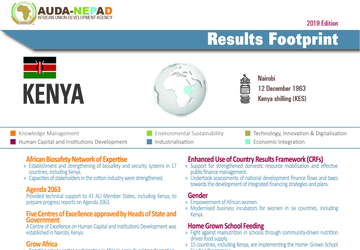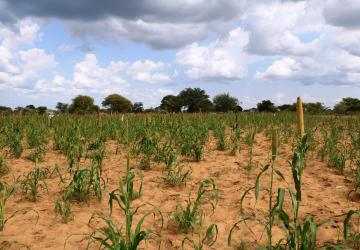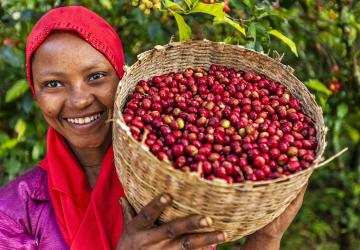 Kenya
Kenya
Official Name: Republic of Kenya
Capital: Nairobi
Independence Day: 12 December 1963
Currency: Kenya shilling (KES)
Key Result
Kenya is among the five countries that have developed and implemented pilot programmes under the Africa Extractives Capacity Assessment Framework (ECAF) as part of domesticating the African Mining Vision.
A total of 7,093 women have benefitted from 11 projects implemented in Kenya by the NEPAD Spanish Fund for the Empowerment of African Women.
NEPAD Agency and JICA jointly established the “Africa Kaizen Initiative” (AKI) in 2017 and Kenya is among the eight AU Member States that have introduced KAIZEN management so far.
85 Million hectares of land on the continent have been committed for restoration through the application of the restoration opportunities assessment methodology. To-date, Kenya has committed 5.1 million hectares.
A total of USD2.26 million was provided to four partners in Kenya resulting in the development of drought and disease resistant sorghum, finger millet, sweet potato, cassava, and canning bean varieties, including a technology for utilising industrial sisal processing waste for mushroom production and Bio-enhancing maize and vegetable seeds with bio-pesticides.
Kenya was interconnected with other four other EAC capital cities and the submarine optic fiber cable from Dar es Salaam to Mombasa in 2013 through a regional optic fibre project championed by His Excellency, President Paul Kagame of Rwanda. Kenya is also a member of the Task team for the Smart Africa Initiate which was established after the 2014 Smart Africa summit in Rwanda.
The country is also working with Uganda to develop a 300 km petroleum pipeline for a lower cost mode of transporting petroleum products.
Related
Projects

A critical AU Model Law aimed at harmonizing medical products regulatory systems in Africa was endorsed by African Heads of State and Government at the January 2016 AU Summit in Addis Ababa, Ethiopia. The AU Model Law will contribute towards accelerate the regulation of safe, quality and affordable medical products and technologies in Kenya.
In 2015, the inaugural IGAD Member States NMRA’s meeting was held in Addis Ababa, Ethiopia. Kenya successfully participated and signed the Call for Action to implement a regional Medicines Regulatory Harmonization (MRH) programme. A follow up meeting was convened in 2016 and agreed to establish an IGAD MRH Steering Committee, Technical Working Groups (TWG’s) and a Coordination Unit.
After the successful establishment of the East African Countries (EAC) Medicines Regulatory Harmonization (MRH) programme in 2012, Kenya participated in the development and subsequent adoption of harmonized technical guidelines by the EAC Council in 2014 and publication of a compendium for EAC Member States. Two pilot projects: the World Health Organization Medicines Prequalification Program (WHO-PQP) and the EAC Joint Assessments and Inspections ensured that Kenya participated in the approval of 5 and 7 products in 2011 and 2013 respectively. The EAC-MRH programme conducted a Joint Dossier Assessment of 8 medicinal products in Entebbe, Uganda in 2015; Four (4) of which were already registered by the Pharmacy and Poisons Board of Kenya. Phase two of the EAC-MRH programme has expanded to include drug safety (pharmacovigilance) strengthening; clinical trials oversight; regulation and quality assurance of medical devices including diagnostics; and harmonization of regulation of vaccines.
Kenya has a designated RCORE specializing in Pharmacovigilance called Pharmacy and Poisons Board (PPB) of Kenya. RCOREs are institutions with specific academic and technical regulatory science expertise and training capabilities capable of producing regulatory workforce in Africa.
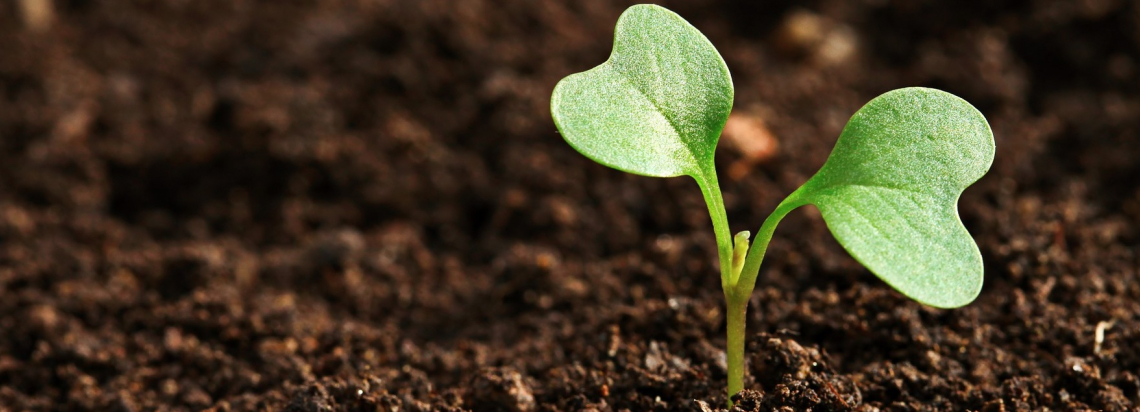
CAADP Compact: Kenya signed the CAADP Compact on 23 -24 July 2010.
National Agriculture Investment Plan: The technical review of the NAIP took place from 6 – 14 September 2010 and Kenya is currently implementing its National Agriculture Investment Plan (NAIP).
Capacity Building: Demand-driven, modular, short-term pilot measures for agricultural training (along selected value chains) were offered by public and private agricultural training institutions for 400 young ‘agripreneurs’ of which 120 were women.
Kenya also received support on agriculture expenditure using the Monitoring African Food and Agricultural Policies (MAFAP) tools. A public expenditure study on the country’s agricultural sector was carried out as well.
Business: The NEPAD Agency facilitated Kenya’s first Business Meeting on 27 September 2010.
Funding: Kenya received funding from the Global Agriculture and Food Security Programme (GAFSP), amounting to USD 24 million.
Results:
- There is an increased number of young Kenyans participating and investing in agriculture.
- There is also increased interest in agriculture programmes from mainstream media.
- Sound policies and strategies are in place and there is a multi-sectoral approach to agricultural issues.
- Kenya has also seen an improved usage of technology, for example, greenhouses, incubators, and hydroponic farming.
- Farmers are now also enjoying a reduction in the cost of agricultural inputs, especially fertilizers, with a fertilizer plant having recently been commissioned for construction.

Programme for Orphans and Vulnerable Children (OVC): Integrating the care and support of Orphans and Vulnerable Children (OVCs) into the implementation of Home-Grown-School-Feeding Programmes (HGSF) was advanced through a pilot programme in Kenya and Nigeria with the aim to ensure that OVCs are targeted for school feeding and given additional skills to prepare them to be more self-reliant. A situation analysis report for South Africa was completed as part of sharing best practices on OVC support.
Measuring Cost of Hunger in Africa (COHA) study: Kenya is among the third-phase countires (Cameroon, Botswana, Kenya, Mauritania) to implement the COHA study. The overarching objective of the multi-country study led by the AUC, NEPAD, WFP and UNECA, is to catalyse coordinated action and inform the design of nutrition-oriented policy frameworks and programmes, with greater investments to eradicate child undernutrition on the continent.


Project : TAH programme
Description : This is phase I of the continental connectivity programme that focuses on completion and standardisation of the TAH missing links by 2030
Project : Single African Sky phase 1 (design and initial implementation)
Description : Single African Sky is a continental programme that will create a high-level, satellite-based air navigation system for the African continent
Project : Yamoussoukro Decision implementation
Description : Accelerate Yamoussoukro Decision implementation by identifying countries that are ready to fully implement it, and discussing and agreeing with both their governments and airlines to launch the voluntary club on a full membership basis
Project : ICT Enabling Environment
Description : This programme would improve the environment for the private sectors to invest in high-speed broadband infrastructure
Project : ICT Terrestrial for Connectivity
Description : This programme has two main components : secure each country connection by at least two broadband infrastructure and ensure the access to submarine cable to all landlocked countries
Project : Internet Exchange Point (IXP) programme
Description : The aim of this programme is to provide Africa with adequate internet node exchange to maximise internal traffic
Project : North–South Power Transmission Corridor
Description : 8,000 km line from Egypt through Sudan, South Sudan, Ethiopia, Kenya, Malawi,
Project : Uganda-Kenya Petroleum Products Pipeline
Description : 300 km long pipeline for a lower cost mode of transport of petroleum products
Project : Northern Multimodal Corridor
Description : This programme is designed to modernize the highest priority multimodal ARTIN corridor on modern standards (climbing lanes and urban bypasses) in East Africa. This programme aims to facilitate travel by people and goods across the borders between Kenya, Uganda, Rwanda, Burundi and DRC with a spur to South Sudan
Project : Lamu Gateway Development
Description : This programme aims at responding to the Eastern Africa challenge in developing sufficient port capacity to handle future demand from both domestic sources and landlocked countries. The priority action will be to develop the Lamu gateway
Project : Zambia-Tanzania-Kenya Transmission Line (DFS)
Description : Promoting power interconnection across the continent and facilitating the creation of
a Pan African power market.



Technical capacities were strengthened to establish and manage functional biosafety systems for the safe use of modern agricultural biotechnology. Other technical support included national biosafety training workshops, biosafety short courses at African institutions and partner institutions outside Africa, notably at Michigan State University in the USA, biosafety internships, technical consultation support, and biosafety information resources.
Biosafety short courses form an integral component of ABNE activities in Africa. In 2014, ABNE presented a biosafety short course at Makerere University in Uganda and agricultural biotechnology short courses at Michigan State University in the USA. A total of 24 regulators drawn from Ethiopia, Kenya, Malawi, Mozambique, Tanzania, Uganda and Zimbabwe gained broad insights into the basics of biosafety science, policy and regulation, GM crop risk assessment and management, and biosafety communication and awareness creation.
Results:
•359 291 women capacitated through CSO and grassroots organizations including 92 Local authorities and state government in the six geopolitical zone of Nigeria. Namibia 13 Council has implemented Action Plan for Gender Aware Service Delivery and 384 Parliamentarian in the region of Tigray, Amhara and Somalia facilitated research support from 250 graduated students for Gender Aware Parliamentarian Oversight.
•74 435 women empowered economic and financial terms: Income generation skills; Deployment of technical assistance to boost agriculture production for both consumption and commercial purposes; Accessing agricultural extension services; Promotion of gender inclusiveness in decision making; Creation of enabling environment to access land; Land tenure and legalization of land title for women; Youth job creation; SME management; Informal and Regional Trade development.
•25 438 women support through institutional based capacity building.
Results:
•359 291 women capacitated through CSO and grassroots organizations including 92 Local authorities and state government in the six geopolitical zone of Nigeria. Namibia 13 Council has implemented Action Plan for Gender Aware Service Delivery and 384 Parliamentarian in the region of Tigray, Amhara and Somalia facilitated research support from 250 graduated students for Gender Aware Parliamentarian Oversight.
•74 435 women empowered economic and financial terms: Income generation skills; Deployment of technical assistance to boost agriculture production for both consumption and commercial purposes; Accessing agricultural extension services; Promotion of gender inclusiveness in decision making; Creation of enabling environment to access land; Land tenure and legalization of land title for women; Youth job creation; SME management; Informal and Regional Trade development.
•25 438 women support through institutional based capacity building.
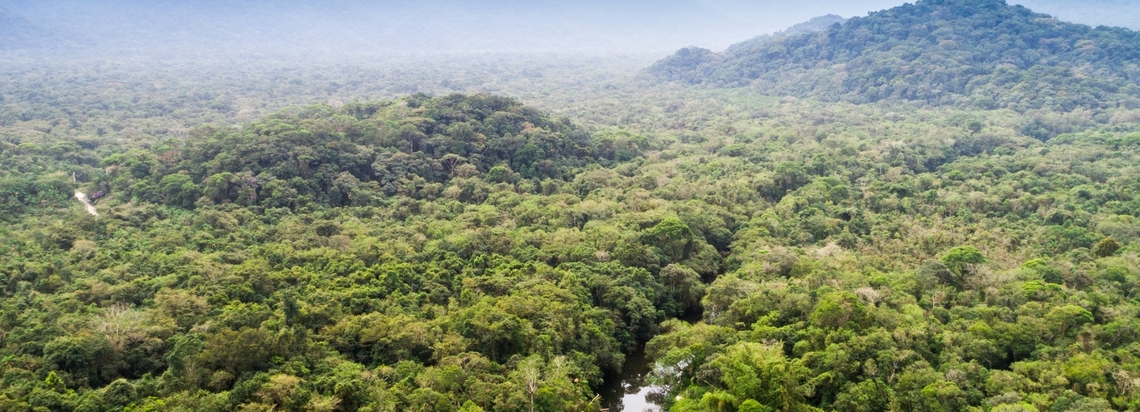
Received technical support to design the Country Strategic Investment Framework
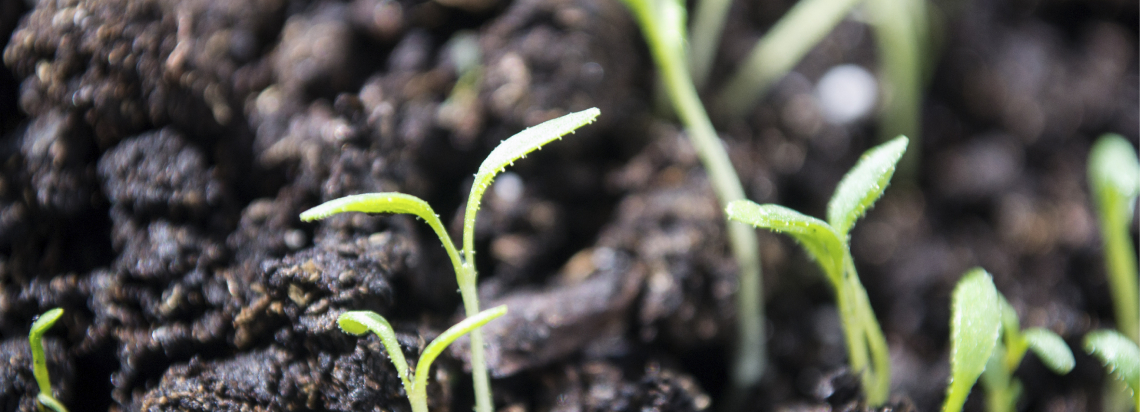
- A Country Climate Smart Agriculture (CSA) Programme was validated and aligned with the National Visions, National Development Plans and the Agriculture sector policies and strategies for Kenya, integrating CSA approaches on climate change, gender and youth. The programme has resulted in the formation of a regional platform for learning and sharing of experiences.
- A multi-sectoral and multidisciplinary national expert coordination team from environment and agriculture were established for preparing Kenya’s CSA Programmes.


Results (2013 – 2015)
Programme for Enhancing Use of Country Results Frameworks:
• In-country Visits have commenced
• Secured funding for the initiative for the next two (2) years
Development and Piloting of an Africa Extractives Capacity Assessment Framework (ECAF):
• the Africa Mineral Development Centre (AMDC) that is driving the AU Africa Mining Vision (AMV);
• Successful selection and buy-in from the five (5) pilot countries initially selected to refine and contextualize the Framework. The pilot countries are Democratic Republic of Congo, Ghana, Mozambique, Kenya and Uganda;
• In-country capacity assessments successfully carried out in 4 countries towards ensuring the countries effectively utilize the instrument so as to develop and deploy requisite capacities required to achieve the Africa Mining Vision with emphasis on “Mining for Development”;
• The Framework is a practical tool that can be used by other sectors to identify essential capacities (Human, Institutional and Evidence-based knowledge) to ensure effective delivery and impact of the particular sector towards sustainable economic growth.
Advocacy and Strengthening of Negotiation Capacities on Post-2015 Development Agenda through the Common African Position (CAP):
• The multi-stakeholder framework of engagement specifically enhanced dialogue towards ensuring the required mass to influence the Post-2015 Global Agenda and Development Goals relevant to the Continent;
• This intervention helped strengthen country and regional level negotiating capacities for the effective incorporation and articulation of Africa’s priorities as enshrined in CAP in the final Global SDGs;
• The project enabled the participation of African stakeholders at the Means of Implementation Engagement, 3rd Financing for Development Conference and the UN General Assembly that adopted the new SDGs. This ensured the incorporation of Africa’s development priorities into the new goals through developing essential negotiation capacities;
• Through the CAP/SDGs space on the Africa Platform for Development Effectiveness (APDev), knowledge products and negotiation documents, as well as, policy briefs where successfully disseminated to the African negotiators in New York and kept the continent’s stakeholders informed of the overall process;
• Development and dissemination of post-2015 Policy Briefs on “Financing and Partnerships” and “Structural Economic Transformation and Inclusive Growth”. These are priorities outlined in the CAP and the policy briefs where utilized in the negotiation process for the African continent.
Global Partnership for Effective Development Cooperation (GPEDC):
• Africa secured the hosting of the 2nd High Level Meeting (HLM) of the Global Partnership. This was attained through robust negotiation and facilitating a common voice from Africa with regards to this critical engagement by the NEPAD Agency. The 2nd HLM will be held in Nairobi Kenya;
• The NEPAD Agency advocated for the full inclusion and participation of Africa’s Regional Economic Communities (RECs) in conducting the 2nd GP Monitoring Exercise. This was a fundamental achievement considering the RECs are the continent’s building blocks with regards to socio-economic transformation;
• The Africa Action Plan on Development Effectiveness (AAP) was granted the status of an official Global Partnership Initiative (GPI) at the Planning Meeting in Brussels. The AAP was developed by the NEPAD Agency in consultation with African multi stakeholders. This has enabled the Agency to successfully mobilize resources towards the implementation of the AAP.

Project : Transmission – Zambia-Tanzania-Kenya Transmission Line Project
Countries/Region : Zambia, Tanzania and Kenya | East and Southern Africa regions
Project Location : Kabwe (Zambia) through Mbeya (Tanzania) to Isinya (Kenya) via Iringa, Singida and Arusha (all in Tanzania)
Sector/Subsector : Energy/Transmission
Project Description : Construction of a transmission line that will connect the Zambian grid to Kenya, via Tanzania, covering a distance of 2,200 km.
Project : Geothermal – Baringo-Silali Geothermal Field Project
Countries/Region : Kenya, Uganda, Rwanda | East Africa
Project Location : Kenyan part of the East African Rift (extending from Baringo to Silali up to the border
with Ethiopia)
Sector/Subsector : Energy/Generation
Project Description : Development of geothermal energy in the Baringo-Silali Block, which comprises the Bogoria, Baringo, Arus, Korosi, Chepchuk, Paka, and Silali prospects.
Project : Transmission-- North South Transmission Line Project
Countries/Region : Egypt, Sudan, South Sudan, Ethiopia, Kenya, Uganda, Tanzania, Malawi,Mozambique, Zambia, Zimbabwe, South Africa, | East and Southern Africa
Project Location : Regional Interconnector-East and Southern Africa
Sector/Subsector : Energy/Transmission
Project Description : Construction of an 8,000 km, 3,000 - 17,000 MW capacity transmission line system from Egypt through Sudan, South Sudan, Ethiopia, Kenya, Uganda, Tanzania, Malawi, Mozambique, Zambia, and Zimbabwe to South Africa, connecting the Eastern Africa Power Pool (EAPP) and the SAPP.

Description : The use of political gravitas and goodwill to unblock and facilitate political bottlenecks affecting the implementation of ICT broadband and optic fibre projects on the continent

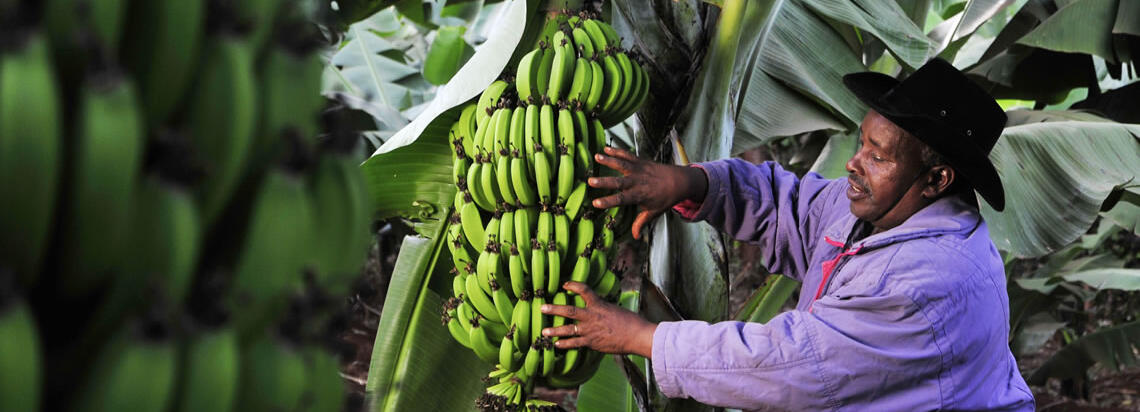
The Grow Africa Partnership comprises over 200 companies and governments in 12 countries. These companies have made formal commitments with the government in the respective country to invest in agriculture.
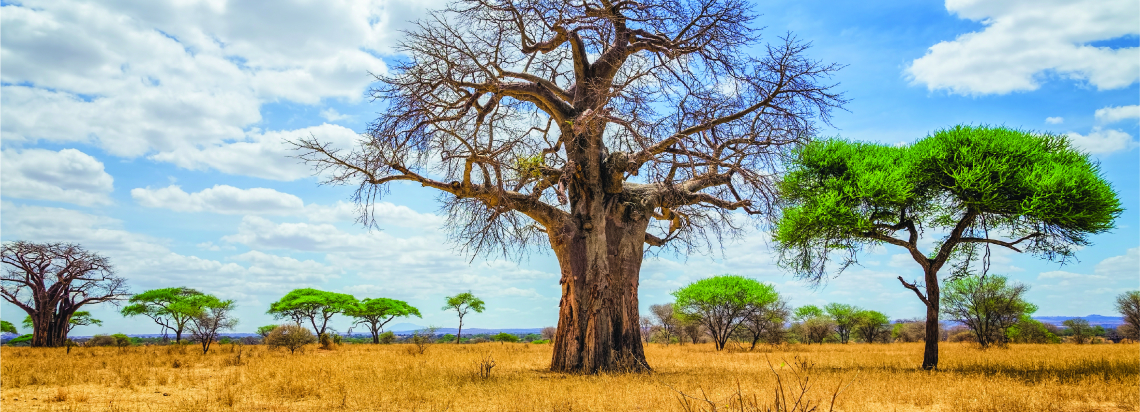
- SLM Country Strategic Investment Frameworks (CSIF): Through the support of the TerrAfrica Leveraging Fund (TLF), Kenya was able integrate SLWM into the national environmental and agricultural frameworks through the development of SLM Country Strategic Investment Frameworks (CSIF).
- Support was provided for undertaking diagnostic studies on cost benefit analysis of SLM as well as analysis of institutional and legislative frameworks for SLM. Support was also provided for development of the Kenya Agricultural Productivity and SLM (KAPP_SLM) project.
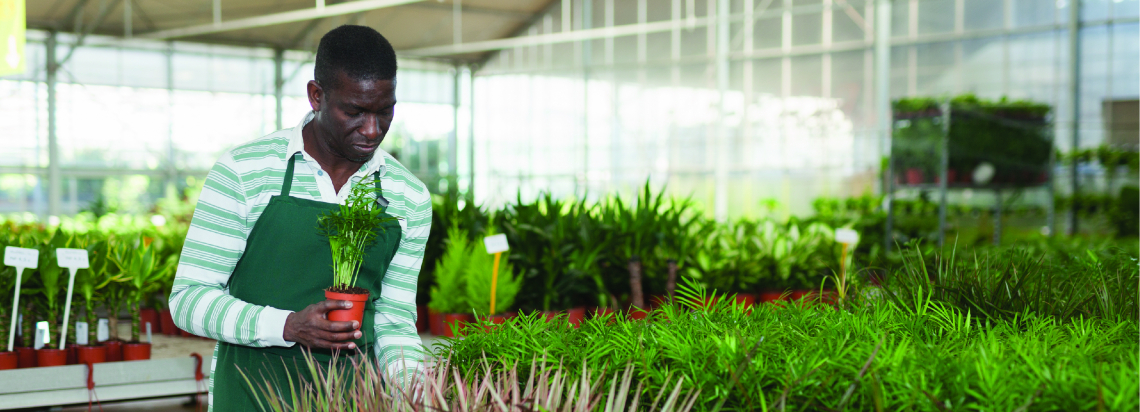
A national strategy for agricultural education is currently being developed in Kenya. With the support of GIZ’s ATVET project, reform measures of TVET in the agricultural sector are being developed in close cooperation with major stakeholders, such as farmer associations, training providers, development partners, government institutions and the private sector.
A training needs analysis was conducted for agriculture related industries and value chain role players in the horticulture, dairy and aquaculture subsectors.
Capacity-building through pilot training of the trainers has been conducted, based on the occupational standards, curricula and training material developed. It includes areas such as contract farming, value chain development, good agricultural practices and aquaculture.
Several public and private training centres and institutions have started pilot training on the developed curricula. These institutions include the Dairy Training Institute, the Bukura Agricultural College, several polytechnics in the counties, the Kenya School of Agriculture (public), Baraka Agricultural College and Faraja Latia Resource Centre (private).
In 2015, 416 trainers underwent training in the following areas: Contract farming - 30 participants; Value chain development -60 participants; Good agricultural practices - 40 participants; Cage farming in aquaculture -10 participants; Competency-based education and training (CBET) methodology - 276 participants;
In total, 318 farmers have been trained in the following areas: Agripreneurship training by Faraja Latia (A resource center providing agribusiness agripreneurship related training) - 80 participants; Vegetable processing by Kenya School of Agriculture - 25 participants; Fodder production and conservation and dairy milk quality control and processing by the Dairy Training Institute - 30 participants; Dairy and horticulture modules in Kakamega County in Western Kenya -100 youth); Dairy production and processing skills in Bungoma County - 58 participants.

Developed and validated of Country Action Plan and Investment Prospectus
NEPAD Kenya in conjunction with NPCA coordinated stakeholders consultations in June 2014 on creating conducive enabling environment for private-public investments in the energy sector as well as identifying priority projects to attain the SE4ALL goals for Kenya, based on a SEA4ALL Action Plan
A Validation Workshop was scheduled to take place on the 12th to 13th of March 2015 to bring together key energy stakeholders to deliberate on and validate the Action Agenda (AA) and Investment Prospectus (IP) for SE4ALL in Kenya. The AA and IP reports have been developed for Kenya with resources from BizClim/NEPAD Project and UNDP in collaboration with Africa SE4ALL hub partners. Participants were drawn from both local and international energy stakeholders invited from Africa-wide organizations, Regional Economic Communities (RECS) and national public, private, civil society and development partners. The validation process main objective was to give the Kenyan Energy Stakeholders the opportunity to ensure that the AA and IP developed represent the country set targets of achieving SE4ALL, Government planned agenda of action and the identified priority energy projects."
Progress in Kenya:
Developed and validated of Country Action Plan and Investment Prospectus
NEPAD Kenya in conjunction with NPCA coordinated stakeholders consultations in June 2014 on creating conducive enabling environment for private-public investments in the energy sector as well as identifying priority projects to attain the SE4ALL goals for Kenya, based on a SEA4ALL Action Plan
A Validation Workshop was scheduled to take place on the 12th to 13th of March 2015 to bring together key energy stakeholders to deliberate on and validate the Action Agenda (AA) and Investment Prospectus (IP) for SE4ALL in Kenya. The AA and IP reports have been developed for Kenya with resources from BizClim/NEPAD Project and UNDP in collaboration with Africa SE4ALL hub partners. Participants were drawn from both local and international energy stakeholders invited from Africa-wide organizations, Regional Economic Communities (RECS) and national public, private, civil society and development partners. The validation process main objective was to give the Kenyan Energy Stakeholders the opportunity to ensure that the AA and IP developed represent the country set targets of achieving SE4ALL, Government planned agenda of action and the identified priority energy projects."
you agree to the AUDA-NEPAD Privacy Policy.










